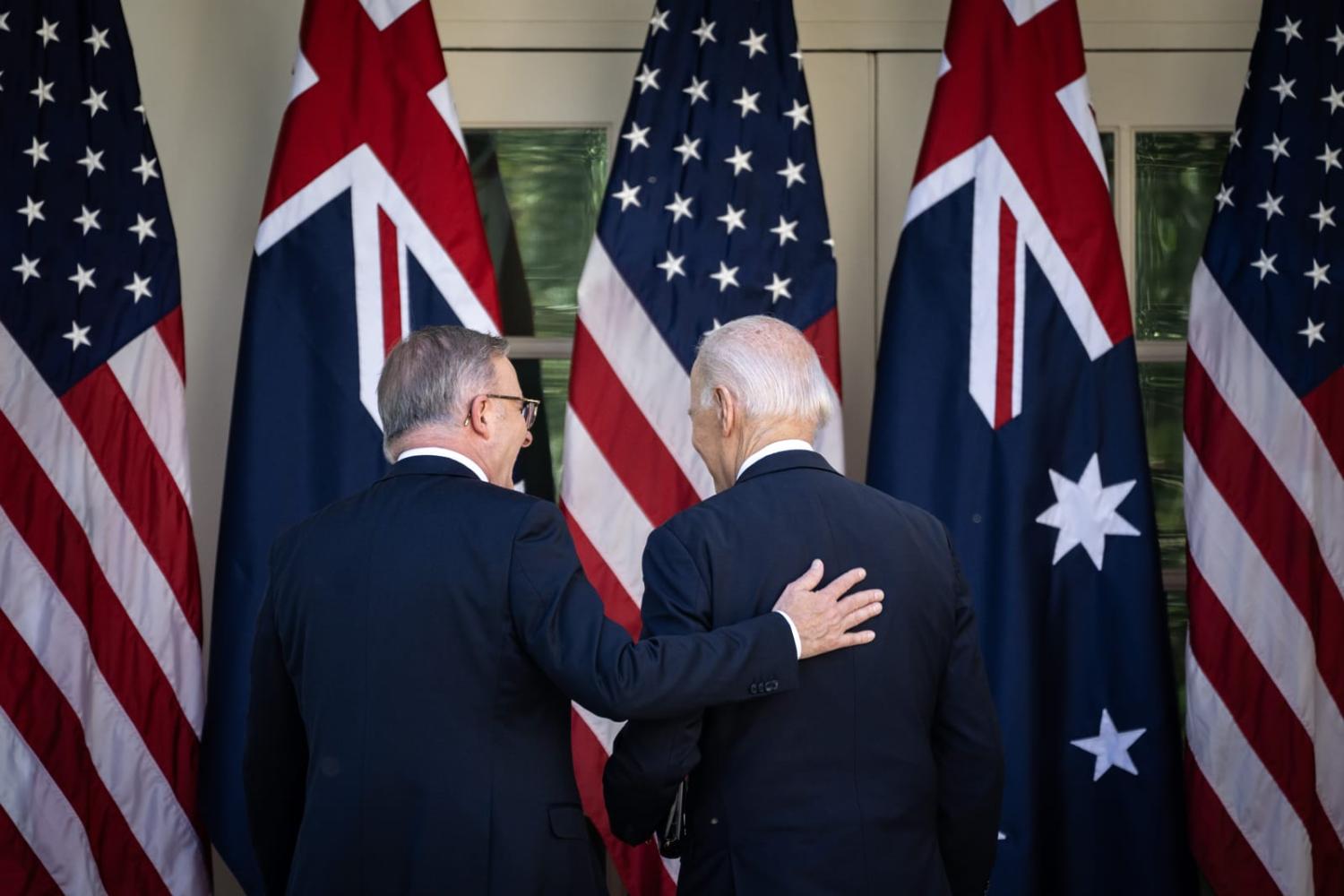On the heels of Prime Minister Anthony Albanese’s visit to Washington last week, which the Biden administration used to convey many messages of support for the US-Australia alliance relationship, let’s also state the obvious: the underlying political circumstances in the United States – chiefly the anti-democratic nature of the Republican Party – are deeply concerning.
These circumstances bring front of mind the question of what Australia would do in the event of another Trump (or Trump-like) presidency. But the answer to this question is also obvious: Australia would make do in a bad situation, building on the breadth and depth of the US-Australian alliance.
A better question to ask is what should Australia be doing vis-a-vis the United States in the short-to-medium term? Present conditions suggest that this is the time to double down on the Democrats, not as partisans but as keepers of the liberal internationalism flame, and use this moment as an opportunity to further increase Australian visibility and influence in Washington. The political dysfunction in America is an expression of the ongoing struggle within the Republican Party that’s been underway since 2016, and not necessarily evidence of a broader shift towards isolationism. And more to the point, it’s not a struggle that the Democrats, much less the Australians, can influence to any meaningful degree.
Democratic politicians and political appointees and their like-minded Republican colleagues in the House and Senate still hold the biggest influence over foreign and defence policy in Washington. For the next year or so, in the absence of evidence to the contrary, it’s plausible to view the politics of America’s far right as mostly noise.
Instead of worrying about the next Trump term, better to enjoy Biden for the remainder of his time in office. He’s far from perfect and yet, in direct contrast to Trump, he emits humanity and decency.
This suggestion may seem irresponsible given the experience of the Trump presidency, and the reality that Australia has made a long-term bet on the United States with the AUKUS agreement, the centrepiece being obtaining access to US nuclear-powered submarines. And the experience of the Trump presidency laid bare the truth that there are limits to how long institutional arrangements can survive a chaos agent. Yet with hard work, Australia also emerged from the Trump years relatively unscathed.
Besides, on the practical side, dysfunction notwithstanding, legislation related to the implementation of the AUKUS agreement continues to move forward in the Congress. It seems likely that key AUKUS-related provisions will survive ongoing negotiations between the House and Senate, which are set for completion by the end of the year. Of course, it’s not guaranteed. This uncertainty reflects substantive policy debates about infrastructure and capacity that are generally not interesting enough to warrant attention from the far right.
In the realm of defence and foreign policy, Biden and his senior advisors spend their time and direct their energies towards issues that are the president’s life’s work and align neatly with Australian interests. (This includes strengthening engagement with allies, standing up for democracy and a preference for diplomatic engagement over the use of military power.) An emphasis on these issues empowers the actions and initiatives of Members of Congress on the House and Senate who seek to strengthen the existing liberal international order. What has shifted is the competition for influence. The war in Ukraine has supercharged the relevance of small-to-medium-sized democracies in Eastern Europe in Washington. The fact that Washington in 2023 is full of high-performing serious players from Eastern Europe, competing for attention and influence, is relevant to Australia, as is the opportunity for Australia to distinguish itself.
Australian politicians and diplomats are understandably proud of the fact that the strength of the US-Australia relationship has a century of history, and this reliability lends itself to greater levels of interpersonal trust between American and Australian leaders.
And yet, it feels like there’s room for Australia to be more visible as a distinct, multifaceted nation versus a somewhat generic junior partner and stalwart ally.
In this context, a couple of things stood out about Albanese’s visit. First, US prime-time news coverage of the joint press conference between the two leaders last week entirely left out the presence of the Australian PM. Second, coverage of the state dinner in the Washington Post provided a sense of a lovely evening between friends, while noting that, “Neither the menu nor the entertainment seemed to have much to do with Australia.”
It is not surprising that media organisations were focused on Gaza rather than the Australian PM. And the relatively late White House decision to tone down the plan for the state dinner may have left little time for creativity. But the broader point is not that Australia should seek to be newsworthy, but rather that beyond security architecture and regular invocations of “mateship”, local knowledge and understanding of Australia’s vibrant, messy, and inherently interesting democracy and culture is limited.
There’s space to nurture this knowledge and, for now at least, a receptive Washington.

